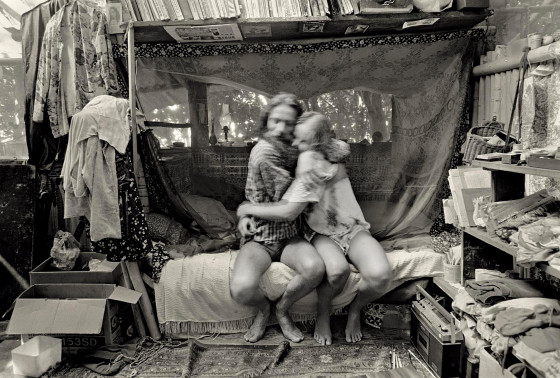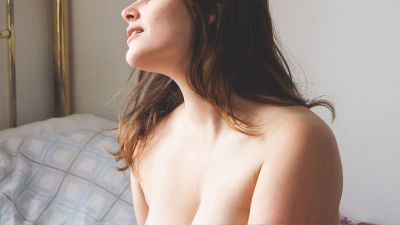The ultimate hippie utopia 'Taylor Camp' where people lived naked and there were no rules or currencies

People who denied being bound by established values and preached a return to pre-civilization life were
Precious paradise --Hawaii Features --Honolulu Star-Advertiser
http://www.staradvertiser.com/features/20100627_Precious_paradise.html
TAYLOR CAMP IMAGES --FINDING UTOPIA
http://www.findingutopia.org/taylor-camp-images.html
Paradise Lost: The Hippie Refugee Camp | Messy Nessy Chic
http://www.messynessychic.com/2013/08/29/paradise-lost-the-hippie-refugee-camp/
Taylor Camp began in 1969. 1969 is the year when Apollo went to the moon, President Nixon took office during the Vietnam War, and the Woodstock Festival, which symbolizes the climax of the hippie era, was held. That year, 13 hippies fled the American college conflict and began living in remote areas of Kauai in Hawaii.
Sandra Shove, one of the early members of Taylor Camp, moved to Hawaii with her husband, Victor. 'Berkeley at that time was about to explode, and the only option left for us in the anti-war movement was to either take a gun or leave.' ..
Soon after, following Sandra and others, the hippie family, who had no money, no home, and were not interested in living a standard life, came to the island. Howard Taylor, the brother of actress Elizabeth Taylor , who had a mansion on Kauai, reached out to help. Taylor invited the hippies to their land, one of Hawaii's most scenic spots, to live for free.
The beach where the Taylor House was, which is beautiful even in black-and-white photographs, looks like this.
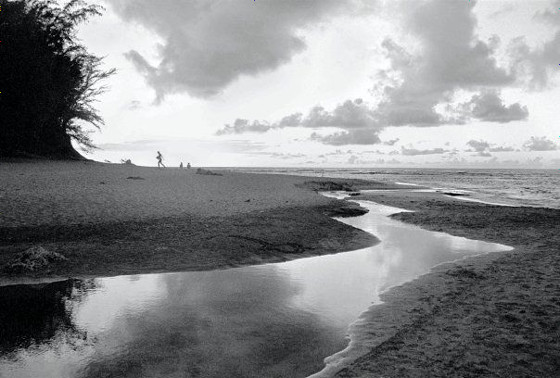
In places where there is no electricity or facilities, hippies who have fallen out of society create a tree house with bamboo, wood fragments, and fallen objects.

Called 'Flower Power Campers,' they realized their dream utopia with no shackles and no leaders. They lived on the resources of the sea and the island, recruited doctors and midwives needed for the village, and sent their children to school by bus. It was a remote land, but the residents of the camp asked the bus driver to pick them up.
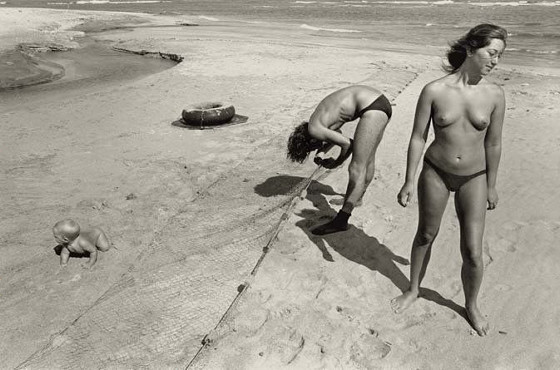
And the rumors of Taylor Camp quickly spread, gathering hippies, surfers, and soldiers injured in the Vietnam War, starting an uncontrolled seaside community.
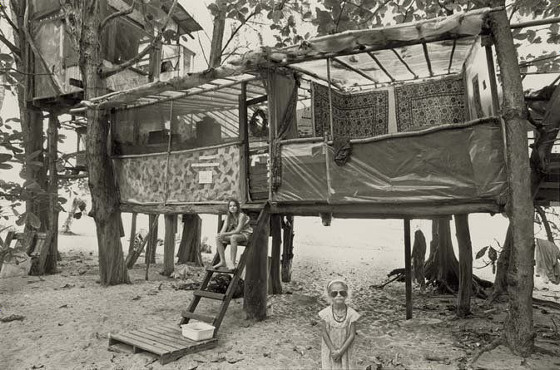
A place like a kitchen.
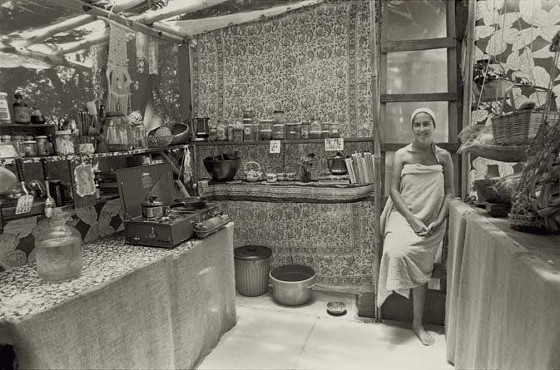
The toilet is separated by a board, but it is completely visible from the outside.
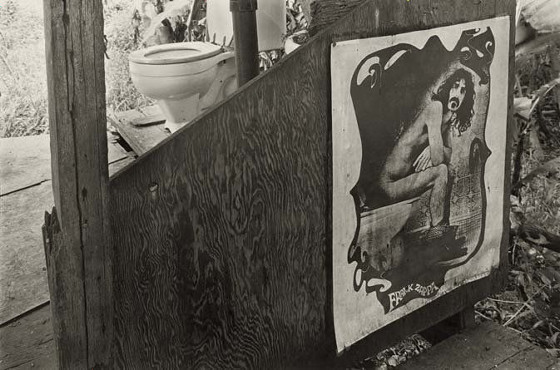
It seems that sewing machines were also brought in.
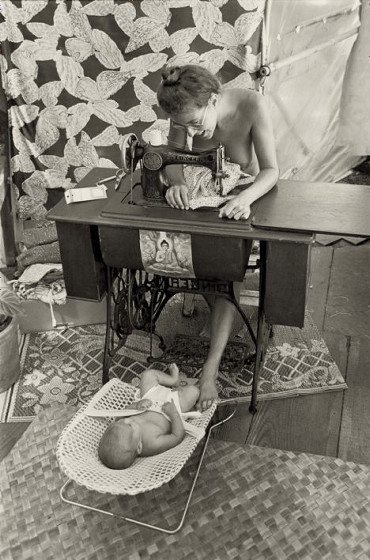
Sisters living in Taylor House.
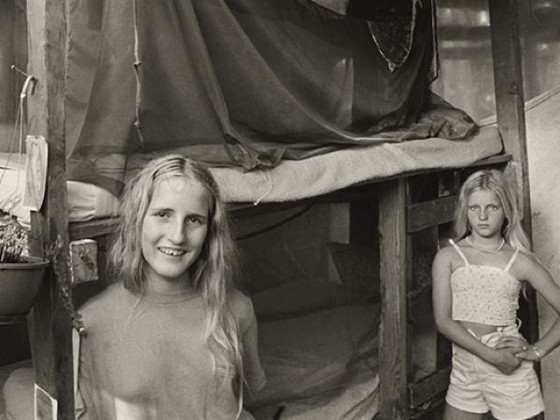
People doing beach volleyball.
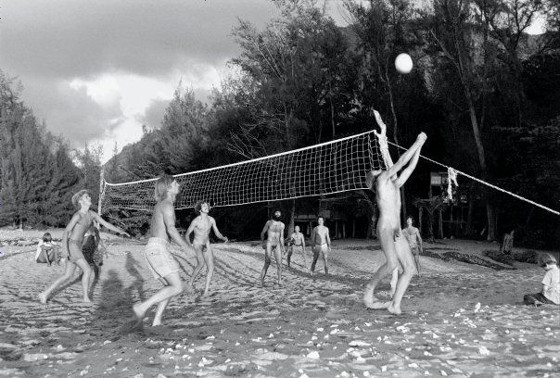
A woman who lives naked.
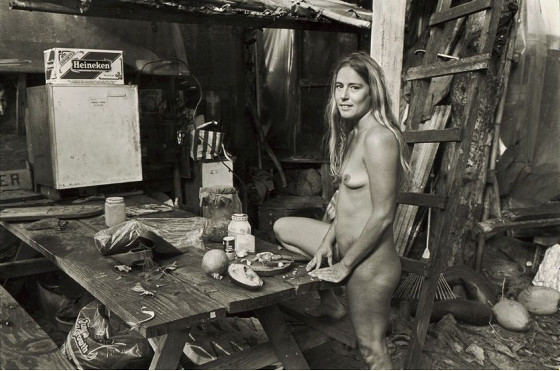
It seems that not only a tree house but also a house full of handmadeness was made.
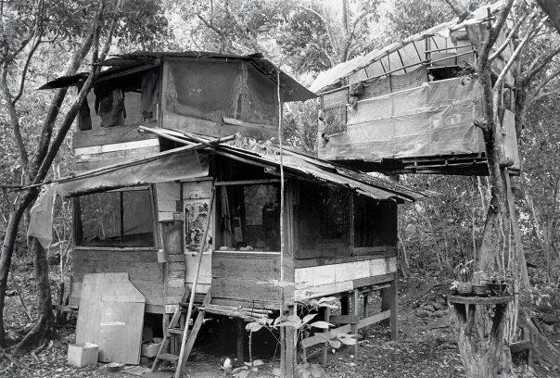
Not everyone lived naked, and some wore clothes.
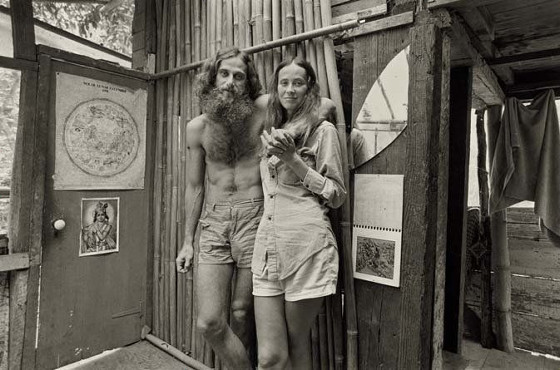
Rosie Rosenthal, who is now a radio personality and lived in Taylor Camp, said of what happened at the time: 'We were naked, but it wasn't nasty. We lived naked and were just as naked. When I look at this girl every day, she feels like a younger sister. If there is a new girl wearing a cloth-like bikini on the beach, she wonders, 'What the hell is that?' Most of them were couples and parents and children, there was little ridiculousness, and it was a community like a middle class society. '

Residents brought in deadlocks around them to the community, with about 120 people living on 28,000 square meters of land at peak times. According to Sandra, 'I didn't have a TV in my camp life, but I knew exactly what was going on.' Susan Loughlin also said, 'Some veterans came back from the Vietnam War, but they were hurt at a glance. They can't laugh. So we taught them how to laugh again. '.
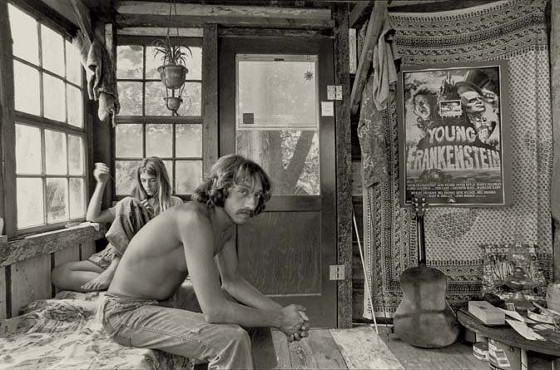
Drugs such as marijuana were a part of life for many residents. Devi Green and Teri Green's sisters, who now live a normal life in San Francisco, are addicted to LSD, but say they weren't using LSD because of the fuss. 'I needed to concentrate my mind. Some people would concentrate by running or hitting the bongo on the full moon, but if I wanted to broaden my consciousness, I would have to use LSD. For me. LSD was a tool for mental awakening and concentration. It wasn't something like 'Let's party with LSD!'
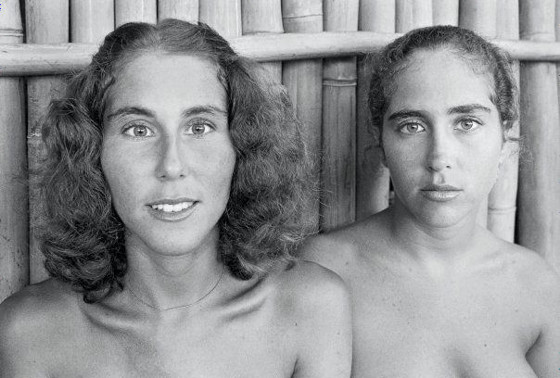
But some of Hawaii's original communities accepted Taylor camps, while others didn't.
According to Hark Hamilton, who raised Susan and some children and later partnered with a woman named Cherry, Hawaiians had come to the community in the middle of the night with guns. A man with a shotgun said, 'Do you have a drug?' And Hamilton, who was frightened, said, 'I lay down on the ground like an idiot and held a big pillow like a shield to protect myself.' I say. Hamilton
The man in the photo is Mr. Hamilton, and the woman on the right is Mr. Cherry.
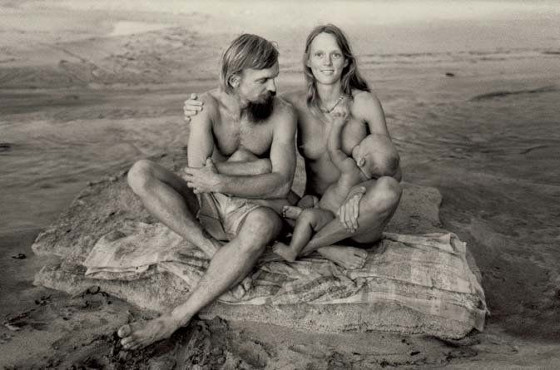
The eight-year-old unbounded ideal hometown of Taylor Camp is the fact that Hawaii's tourism industry has become more active and the original Hawaiian residents 'occupy the most beautiful places in Hawaii with unpaid hippies.' I can't stand it and it's over. The state acquired the land that Taylor gave the hippies in 1977, as the complaints that they were unsightly and stealing naked and sucking drugs grew. The hippies were forced to evict after being found guilty of paving the way to Na Pali Coast State Park. Authorities then set fire to the camp to prevent the hippies from returning again. The place where the Taylor camp was now becomes a park for camper vans, and public toilets and picnic tables are installed.
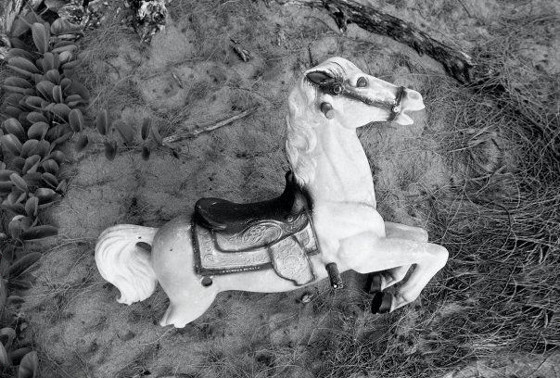
In 2010, a Taylor Camp documentary was created. The preview movie of the movie '
Taylor Camp Film Trailer --70s Hippie Film Documentary --YouTube
The lost Taylor camp, but what happened at the time was irreplaceable for the hippies, and film co-producer Robert C. '97% of the residents will say that moment was the best time of their lives,' Stone said. 'I want to go back to that moment at this moment,' said David Pearson, who lived as a public school teacher after spending time at Taylor Camp and is now retired. 'I can't imagine a life as primitive and beautiful as life on that island,' Pearson said of Taylor Camp. 'It was the only experience that determined my life.'
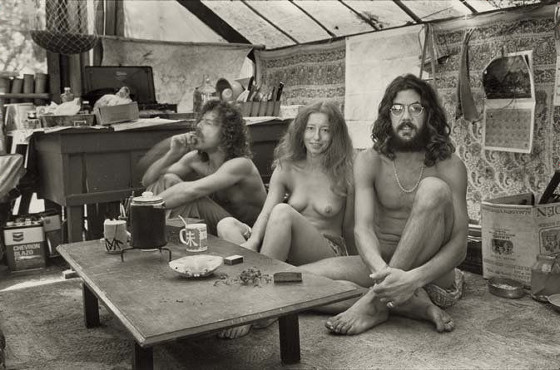
Related Posts:
in Note, Posted by darkhorse_log
